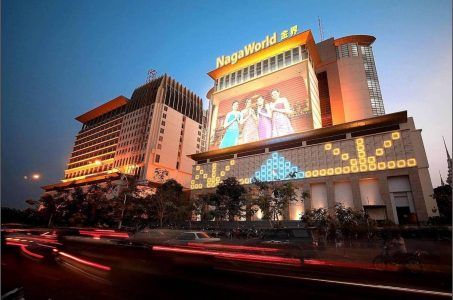How UNLV Researchers Are Helping Shape Casino Gambling in Japan
Posted on: November 26, 2017, 10:00h.
Last updated on: November 27, 2017, 02:17h.
The Japanese government is systematically moving forward, albeit slowly, with legislation that will authorize the development of integrated gaming resorts, a major change for a country that has long prohibited casino gambling. And researchers from UNLV’s International Gaming Institute are helping Japanese officials prepare to build the best gaming industry possible.

UNLV announced earlier in November that IGI Researcher Dr. Brett Abarbanel received a $289,000 grant from the US Chamber of Commerce to continue her project, “Socio-Economic Impact of the Integrated Resort in Japan and Evaluation of Nevada Gaming Regulatory Process to Eliminate Organized Crime in Las Vegas Casinos.”
It’s all part of a collaboration between UNLV and Japan, to help them formulate regulatory systems, set up programs that address problem gambling, and keep criminal elements out of an emergent casino industry.
“Japan is in a fortunate position,” said IGI Executive Director Bo Bernhard. “The government is asking all of the right questions, and the science behind the socioeconomic impacts of integrated resorts has improved significantly in the past 15 years, providing practical and powerful guidelines for many decisions.”
Earlier this year, a group of Japanese business leaders and government officials commissioned researchers at the IGI to give them guidance on how to best regulate integrated casino resorts. And earlier this month, those reports produced by Abarbanel, Bernhard, and Jennifer Roberts of the IGI, and Kahlil Philander of Washington State University, were made public.
Growth and Responsibility
The idea was to put together a comprehensive picture for Japan before they embarked on implementing large scale legalized gambling for the first time. Over the course of 100 pages in “Socio-economic impacts of Japanese integrated resorts – review and recommendations,” the UNLV team looked at how the Japanese government could balance the goals of growing a tourism market while simultaneously minimizing gambling’s social costs.
Among their recommendations was a call for creation of specialized law enforcement divisions for gaming investigations, and for the development of a national problem gambling council that would be “neutral” towards the gaming industry.
The report also considered previous research on the impact of different types of regulations, such as betting limits at casinos, and shared their conclusion that there was “limited information about the effectiveness of these programs in reducing harm.”
Lawmakers in the Japanese Diet have floated the idea of requiring entry fees for locals to keep problem gamblers away. However, the UNLV authors warned against this.
“Worryingly, admission fees likely increase the share of revenue from players with a gambling disorder,” the report stated. “We strongly discourage placing any constraints on the domestic market (either through visit limits or entry fees).”
Keeping Mob Influence at Bay
The second report from the IGI aimed to help Japanese officials understand how they could keep organized crime out of the gaming industry.
In Japan, yakuza mobsters currently have control of many Japanese gambling activities. But using Nevada as a model, researchers showed how Las Vegas managed to move away from a mob-controlled culture, and made several recommendations for licensing process and industry regulations to have proven effective at helping keep the casino business clean.
For instance, the authors said that the regulatory system should be able to “help perform police-level overt and covert criminal investigations,” and that casinos should be encouraged to engage in vigorous self-regulation to support such a system. Regulators should also have the power to impose sanctions against operators, and exclude people linked to organized crime from even entering licensed resorts.
“For Japan to attract the desired and desirable kind of globally-competitive capital investment in its integrated resorts, which will in turn allow for the kinds of globally-competitive integrated resort destinations to be constructed, there can be no association with organized crime at all,” the report said.
The authors concluded that these steps and others would be necessary to ensure that Japan’s gaming industry could compete in the global market, which is why they contacted the academics who know this world best.
Related News Articles
Most Popular
FTC: Casino Resort Fees Must Be Included in Upfront Hotel Rates
Genovese Capo Sentenced for Illegal Gambling on Long Island
NBA Referees Expose Sports Betting Abuse Following Steve Kerr Meltdown
UPDATE: Former Resorts World & MGM Grand Prez Loses Gaming License
Most Commented
-
UPDATE: Whiskey Pete’s Casino Near Las Vegas Closes
— December 20, 2024 — 31 Comments -
Caesars Virginia in Danville Now Accepting Hotel Room Reservations
— November 27, 2024 — 9 Comments -
UPDATE: Former Resorts World & MGM Grand Prez Loses Gaming License
— December 19, 2024 — 8 Comments -
FTC: Casino Resort Fees Must Be Included in Upfront Hotel Rates
— December 17, 2024 — 7 Comments
















No comments yet